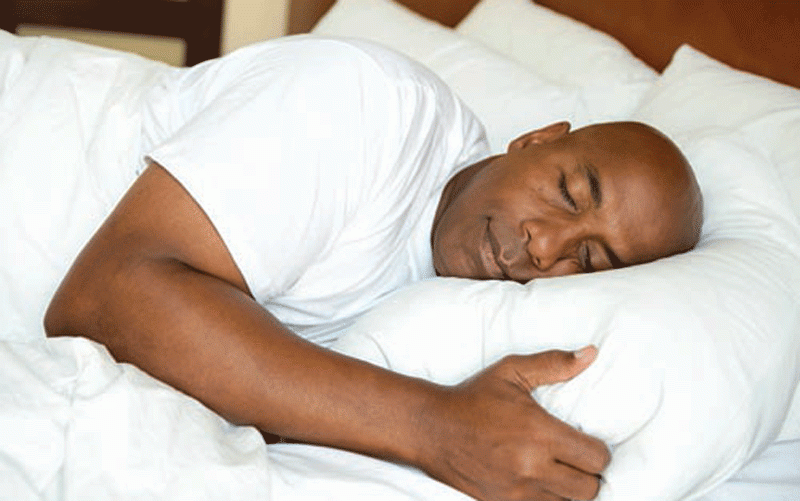
Mental health is a state of well-being in which an individual realises his or her own potential, can cope with the normal stresses of life, can work productively and fruitfully, and is able to make a meaningful contribution to their community.
Mental health is a critical component of individual, family, community and national wellbeing and prosperity.
Our ability to rest is key to maintaining mental health and wellbeing.
Rest is a period of reduced physical and mental activity in order to recuperate and recover our strength in the face of life’s challenges.
It is vital to make time and create opportunities to rest in order to be mentally healthy.
Are you exhausted, do you need to rest?
Are you feeling tired most of the time?
Are you becoming less productive and find yourself making unnecessary mistakes?
- Mental health must be a priority at our workplaces
- ‘Art therapy critical in combating mental disorders’
- Be ethical, Potraz tells content creators
- How HR can effectively handle employee depression
Keep Reading
Are you often irritable and impatient?
Are you struggling to concentrate and focus?
Are you struggling to sleep or sleeping too much?
Are you often physically unwell often?
Types of rest
We often mistake sleep for rest, rest is much more than sleep. Several types of rest have been described including:
Physical rest: we need rest from physical activity so that our bodies can rest and recover from the strain of work.
Physical rest allows our bodies to detoxify and heal from the wear and tear of life.
Slowing down physically will allow for muscle recovery, it lowers stress levels this in turn reduces the risk for cardiovascular and metabolic disorders.
Sleep, which is a major part of physical rest is essential for physical wellbeing.
Sleep helps to regulate blood pressure, blood sugar levels and hormone levels, decreasing inflammation and boosting immunity.
Mental and emotional rest: we need rest from mental activity, we need to slow down and find periods of rest and reflection. We need time to be mindful and present in the moment.
We need time to seek and find internal peace.
Mental rest reduces stress levels, this reduces risk of developing anxiety, depression, substance use and other common mental health problems.
Sensory rest: We are continually exposed to stimulation from our phones, television and gadget screens, our laptops and all sorts of technology.
We are in and out of virtual meetings and this can be exhausting.
We need quiet, reflective time where we eliminate visual, auditory and any other stimulation to be able to recover mentally from overstimulation.
Social/ relational rest: some relationships in life are demanding and draining, we need to take time to focus on refreshing relationships that can revive us and help us to rest.
We may need to take time away from demanding social engagements to allow us to self-reflect and rest.
We may need to learn to spend some time alone to help us rest from social engagements.
Spiritual rest: life can be tiring and wearisome.
We need to find time to rest spiritually, to seek out and find meaning in our lives, to reflect and recollect, to realign ourselves to our beliefs and values.
Why do we struggle to rest?
Rest is important for our physical and mental wellbeing yet we often resist it. Some challenges that may make it difficult to rest include:
Overthinking and struggling to have quiet in our minds
Perfectionism and the need to overachieve
A lack of inner peace and being uncomfortable being quiet or still
Fear of losing control or losing relevance if we take time off
Poor self-care habits or never having learnt how to prioritise rest
How can I prioritise rest?
- Sleep: to be better rested we need to prioritise sleep. A healthy adult needs 7 to 9 hours of sleep every night. Older adults (over 65years old) need slightly less sleep. Adolescents need 8 to 10 hours of sleep a night. School going children need 9 to 11 hours of sleep a night. Younger children need up to 14 hours of sleep a night. Prioritising sleep means changing our sleep habits and choosing sleep over late night socialising, working late, watching television and scrolling on social media sites
- Take time off on weekends and vacations: prioritise scheduled breaks and holidays.
Use them as time to actually rest rather than to catch up on work backlog. Take time to reconnect with family
- Make time to reflect and introspect: prioritise time alone, solitude can help us quieten our minds, recharge and refocus. Prioritise being aware of your emotions and thoughts and managing them better.
- Take a break from technology: prioritise rest from your phone, your laptop, the television and all forms of technology. Prioritise time outside in nature.
Prioritise being present in the moment.
If you think that you or someone that you know may be struggling with physical and mental exhaustion, please contact your nearest health care provider and get help.
*Dr Chido Rwafa-Madzvamutse is a consultant psychiatrist. Feedback: WhatsApp: +263714987729










